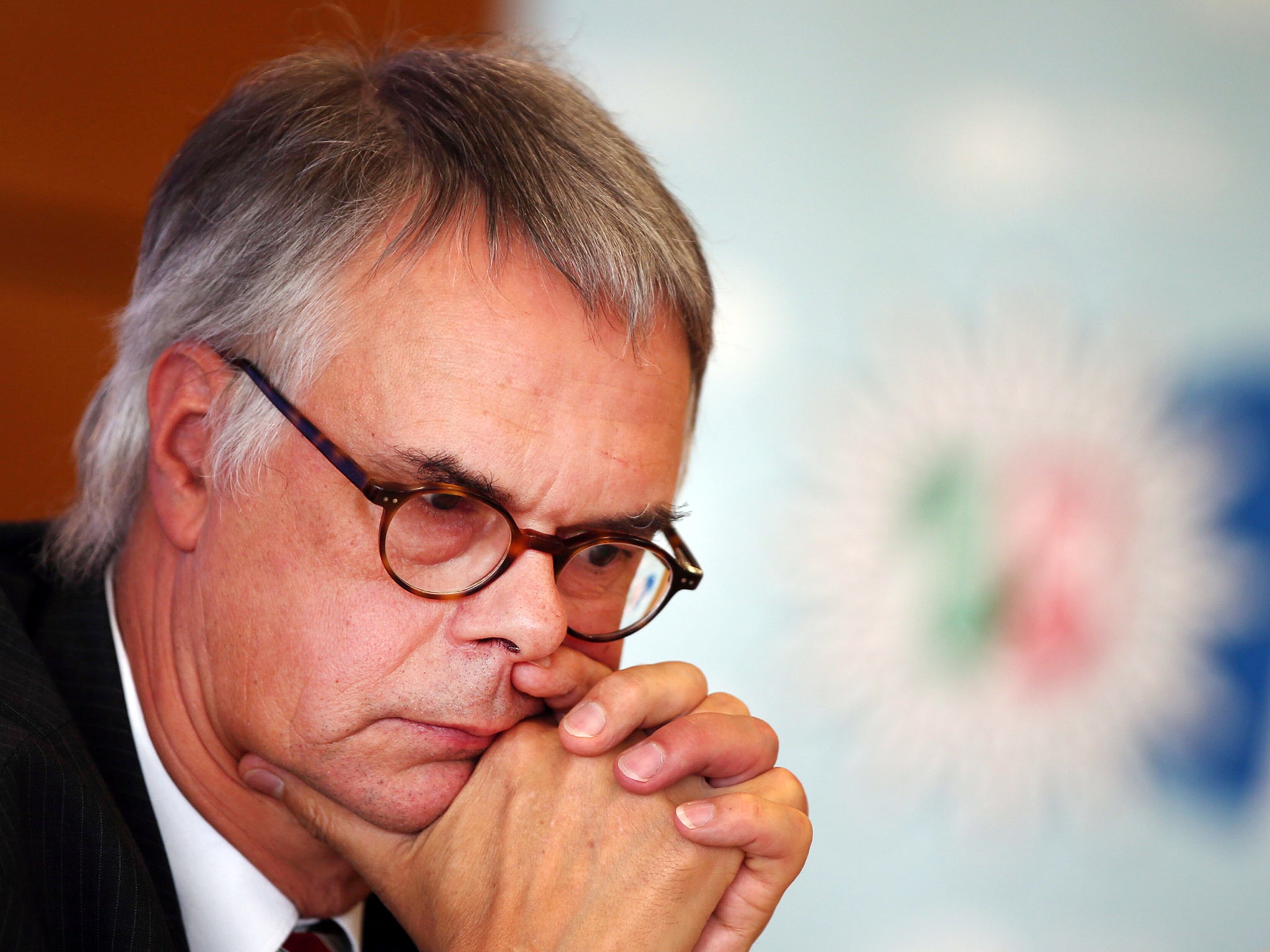Cologne sexual assaults: Police chief Wolfgang Albers suspended as anger mounts over New Year's Eve chaos
Wolfgang Albers, 60, became the focus of criticism as the scandal continued

The head of Cologne’s police force has been suspended from his post as anger continues to mount over the handling of mass sexual assaults in the city on New Year’s Eve.
Wolfgang Albers, 60, was ordered to temporarily step down on Friday by Ralf Jäger, the interior minister for North Rhine-Westphalia (NRW).
He has been forced to defend his officers repeatedly in the past week after an estimated thousand men, believed to mainly be migrants and asylum seekers, sexually abused, raped and robbed scores of women in a city square.
A leaked police report said officers could not prevent or even record all the crimes as there were “just too many at the same time” by Cologne’s famous cathedral and main railway station.
An initial press release described the evening as “relaxed” before stories of the chaos emerged in local media, and Mr Albers later admitted the “statement was incorrect”.
Stepping down today, Mr Albers said he had attempted to serve the people of Cologne well as the city’s Police President.
“That means taking responsibility in difficult times – especially if Cologne Police has been unsuccessful in fulfilling citizens’ expectations, if they have been hurt or left unprotected.” he added.
“As you all know, this was the case on New Year's Eve. This situation must now be thoroughly reviewed.
“The public debate surrounding myself is impeding and delaying this important work. Therefore, I understand the decision made today by the NRW Interior Minister,Ralf Jäger.”
Mr Albers said the move hoped to restore lost confidence but addedthat although police leadership had was being criticised, officers were not to blame.
“The police officers stationed around Cologne railway station on New Year's Eve do not deserve this criticism,” he said.
“To the police officers in Cologne, I would therefore like to express my heartfelt respect for all your work.”
The suspension will be considered at a local cabinet meeting next week but a source at the state’s interior ministry told The Independent Mr Albers was unlikely to return.
Mr Jäger said the move was “necessary to restore public trust and the Cologne police's ability to act, with a view to upcoming major events,” which include the city’s annual carnival being held next month.
Angela Merkel said Germany would “not accept” the scenes seen on New Year’s Eve, while Interior Minister Thomas de Maiziere stepped in to specifically criticise policing, saying: “The police shouldn’t work like this.”
Some witnesses accused officers of standing by as women were attacked, while others said police appeared to be doing all they could but were overwhelmed by the unprecedented numbers.
Police have identified 18 asylum seekers among 31 suspects on suspicion of committing crimes ranging from theft to assault and verbal abuse.
They were believed to be among a group of up to a thousand men in front of Cologne's main railway station on Thursday evening.
None of the 31 men detained are suspected of the sexual assaults that have provoked outrage and protests across Germany over the past week.
They included nine Algerians, eight Moroccans, five Iranians, four Syrians, two Germans and one person each from Iraq, Serbia and the United States.
Cologne police said they have received a total of 170 criminal complaints related to New Year’s Eve, including 120 of a sexual nature, and arrested two men from “North Africa”.
The incidents have triggered calls for tighter immigration laws, particularly from politicians opposed to the open-door policy that allowed nearly 1.1 million refugees to enter the country last year.
Additional reporting by agencies
Subscribe to Independent Premium to bookmark this article
Want to bookmark your favourite articles and stories to read or reference later? Start your Independent Premium subscription today.

Join our commenting forum
Join thought-provoking conversations, follow other Independent readers and see their replies